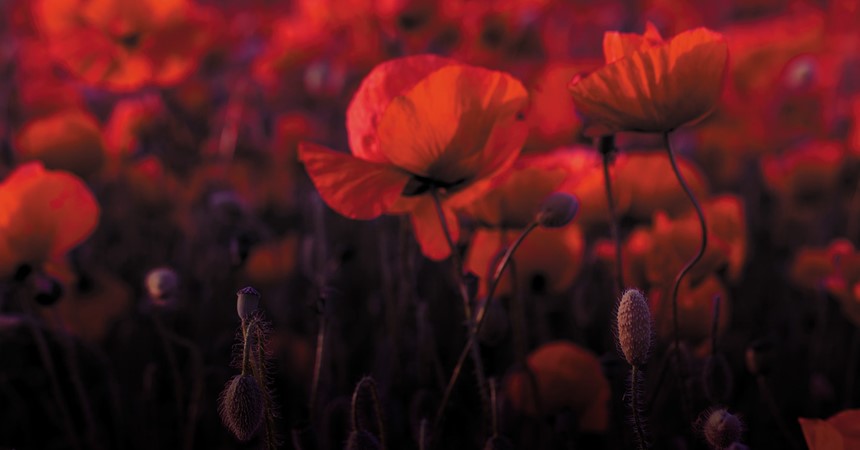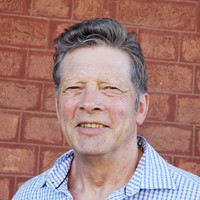Laying down one’s life for the benefit and protection of one’s fellow citizen is undoubtedly an act of great nobility and many who attend Anzac commemoration ceremonies regard the day as a ‘sacred’ occasion. With that I have no quarrel and would not seek to diminish the significance that the day has for, seemingly, the majority of Australians.
Realising the imminent approach of the day, what immediately flashed into my mind was the description appended to it, at this time last year, by a local NBN newsreader. He referred to it as “Our most sacred day”. I wondered was this merely a convenient label? A presumptuous sweeping statement? A throw-away introduction for another journalistic commodity? Whatever, it focused my thinking upon the word ‘sacred’.
I pictured again my first Anzac day experience at Belmont when I’d been chosen to represent my cub pack and carry a wreath in the town’s march. It was a task accompanied by intense personal emotion: embarrassment born of shyness; trepidation born of ignorance concerning what the occasion demanded. I was, apparently, expected to exude ‘solemnity’, a prime requirement of the duty, one which had never been communicated to me. This, I was supposed to have deduced from the surrounding clues: from the flags; from the tenor of the speeches; from the humourless gulf of silence in which all listened; by imitation or by osmosis I should have recognised and comprehended the ‘sacred’ nature of proceedings. From the age of ten, what I thought that I comprehended was that carrying out some ‘sacred’ function ‘properly’ should not be done in ignorance and with unintended insincerity so that it became a kind of charade. Somewhere in the mid-1950s what I came to sense vaguely, was that sincerity and hypocrisy can never be bedfellows and that an acceptance of concepts usually requires good reasons to complement emotion. Must have reason. That is what I thought I had learned. A more mature realisation could have been that one can respect the sincere beliefs of others but that in itself can be a very different thing from espousing an agreement with what they hold to be ‘sacred’. So what does that word mean?
It derives, according to my dictionary, from the Latin root sacer meaning ‘holy’ – in its prime sense, ‘associated with God or a deity’. Commonly enough, I’ve heard people I know speaking of their earliest ‘religious impulses’ in terms such as ‘springing from some restless seeking’. ‘Longing’, ‘wrestling’, ‘aching’, ‘reaching’ and a consciousness of some ‘dissatisfying incompleteness’ are other epithets I’ve frequently heard. Many have come to accept that such spiritual hollowness can only be brought to a state of peace and wholeness when a union has taken place with the Creator. This earthly life then, for such people (including myself), is not the proverbial ‘be all and end all’ on this “bank and shoal of time”.
Such thoughts and feelings can evolve into a state of awe when the realisation comes that what is truly sacred may be apprehended but not entered into in this lifetime. Icarus and his vainglorious human posturing are a clear representation of that.
‘Union with God’, ‘entering heaven’ and ‘being resurrected into an afterlife’, to my way of thinking, are expressions of some ultimate wish to embrace the sacred; concepts that can be sensed only; vague visions of a state in which the infinite will subsume all the finite aspects of human existence – a glorious transformation which may be anticipated through prayer and meditation.
What is clearer to me is that in this earthly life, wonder at the greatness of creation can sometimes be overwhelming. For me, it is from here that the sacred emanates. At this very point I must disagree with the newsreader’s description, “Our most sacred day”. If what is held to be ‘sacred’ is linked to God (a God of omnipotence, omniscience and omnipresence) it seems more than a little absurd to speak of one day as being more ‘sacred’ than another. If the God I describe exists, then every day is sacred – for like God, the sacred surely cannot be confined to some particular place and time and observance. And if this is so, response to the sacred, rather than confining thoughts and actions, should inspire creative searching beyond known boundaries.
My very ordinary layman’s views are paralleled so succinctly, so beautifully, in two utterances of the poet William Blake.
“To see a World in a grain of sand And a Heaven in a wildflower”
And this gives cause to reflect on a basic belief of our Indigenous people who traditionally regarded the natural environment and their inseparability from it, as sacred. Here is a wisdom we all have need to grasp.




























































































